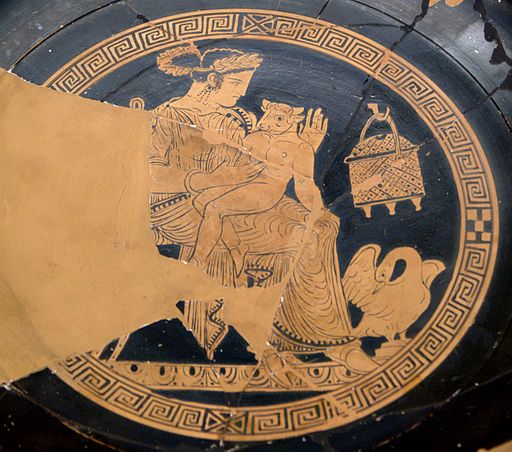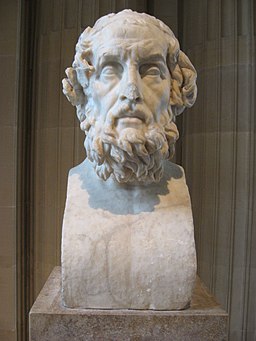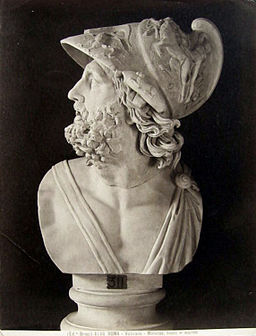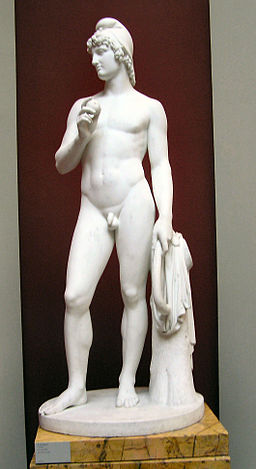I love Classical mythology. But there is no question that it is a mess of contradictions sometimes. Parallel stories growing up from different regions, only combined later, and never reconciled results in a number of fascinating Gordian Knots of confusion and crossed-paths. Sometimes there's enough of a narrative that you can fudge it without too much of a problem -- like the relationship between Theseus and Heracles, and their shared adventures -- but sometimes, there really is just no way to make it all work together coherently.
For example, Jason and those pesky Argonauts. Let me count the ways in which I find them impossible, for me, as a writer of historical fiction:
1) No one agrees about who all took part in this famous Voyage of Heroes.
This muddling is no fault of Jason's or his crew, but rather the city-states who each wanted to have their hero take part and so, over time and with each addition, completely obscured any truth that might have ever existed. And here's the thing that makes this so frustrating: I can totally see Castor and Pollux elbowing Joe Hero who's trying to impress some king while bargaining for a wife, winking and smiling and saying "Oh yeah, Joe? He was with us on the Argo! He's the real deal!" I imagine, with that many people taking part, it would have been easy to fudge your way onto the list. Not unlike claiming you're some by-blow of Zeus or Ares or Apollo or Poseidon, because everyone knows the gods get around, right? BUT...
2) Trying to fit the voyage of the Argonauts into an historical and linear narrative with OTHER heroic quests and adventures is completely impossible.
If you do figure out who went, fitting it in between Heracles' 12 labors etc, Theseus' Labors (and don't forget "Not Without Theseus" was actually a SAYING because he was involved in everything, apparently), Helen's abductions and the Trojan War, and the stories of the Dioscuri (Helen's brothers) is kind of ridiculous. It all takes place AT THE SAME TIME. Frankly, I'm inclined to believe that none of the major players went with Jason at all, because there is just no way to put it all together and have everyone be where they're supposed to be later. No. Way.
Now, if the only book you're writing is Jason's, this isn't an issue, but guys, I love Theseus, Helen, Heracles, and Pirithous, and if I'm going to write me some historical fiction, for my own sanity, I'd like it all to fit in the same world. Jason and the Argonauts would shred my already extremely delicate balancing act of a timeline into pieces that would never, ever fit together again.
3) Balancing UMPTEEN Heroes all in one cast of characters while giving them all distinct personalities and a fair shake while not IMPOSSIBLE, definitely poses challenges.
There sure would be plenty of conflict within the party. No lack of ego and hubris as they all struggle to work as a team when each one is used to taking the lead and doing their own thing. I mean, if Jason is in charge, that makes everyone else involved his SIDEKICK, and I'm just not sure how to tackle Heracles or Theseus as a sidekick to anyone -- they're both forces to be reckoned with, to say the least. Then of course there is the potential of bad blood between heroes who had engaged in altercations pre-voyage, all confined to a ship for how long?
This is an ensemble cast of EPIC proportions -- and I do mean Epic in the most definitive sense -- and frankly, it gives me a headache just THINKING about it. Ensembles are hard to pull off, and while one day I might be ready to tackle that mess (in a standalone totally its own continuity adventure) I just can't imagine how I could do it justice at this juncture. Remember that there were between 40 and 60 men (and women) named as Argonauts. That is a LOT of folks to work into a narrative, even after you pair it down to the essentials. And the story of Jason and the Argonauts? That is definitely a retelling that will require some cutting of characters and creative license with the source materials to make it work, no question.
So when the day comes that my books are on shelves -- there is one hero you can safely bet won't be in the mix.
Sorry, Jason, it isn't you, really, it's me.


.jpg)

























